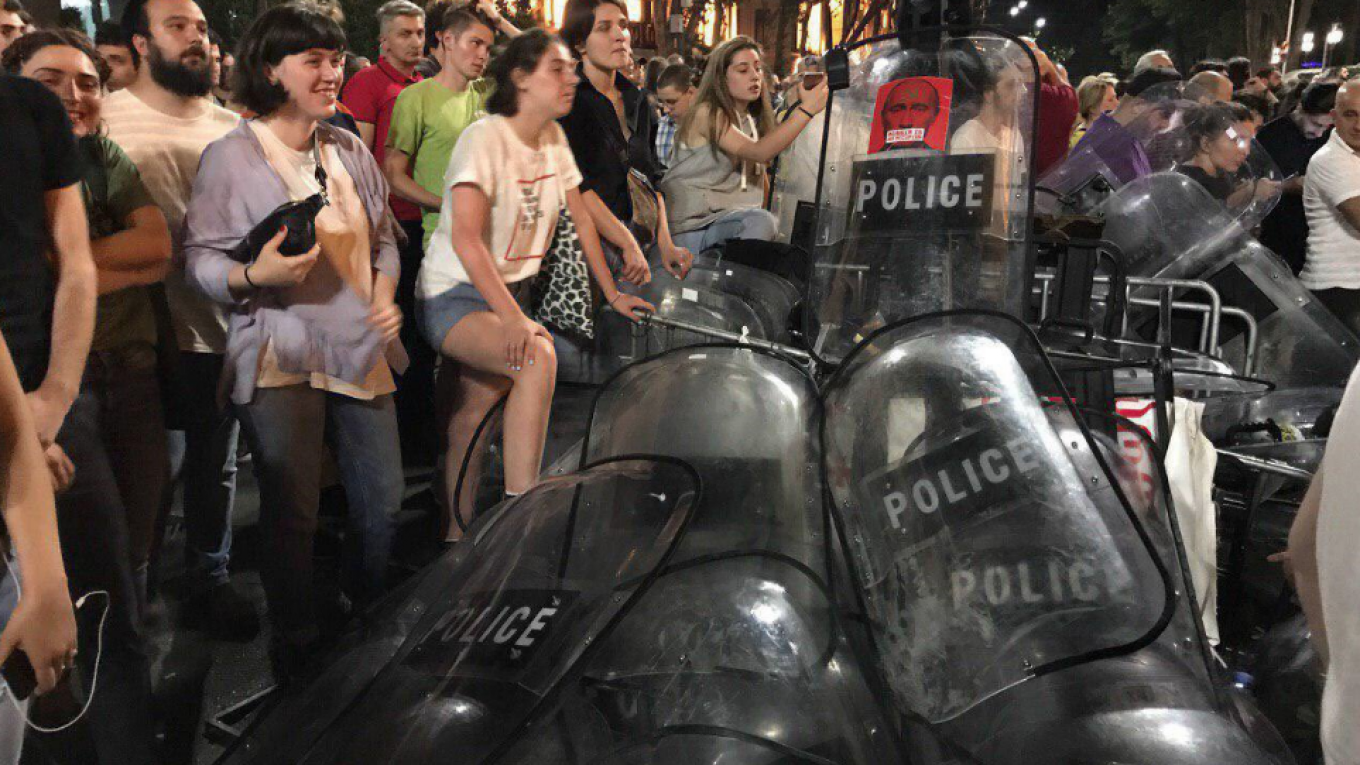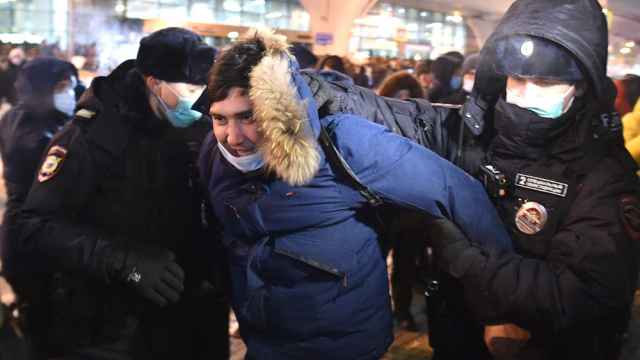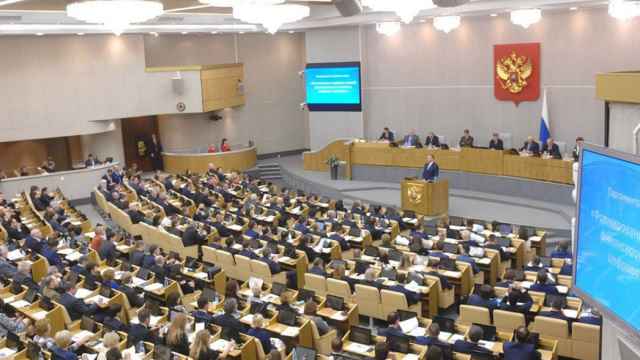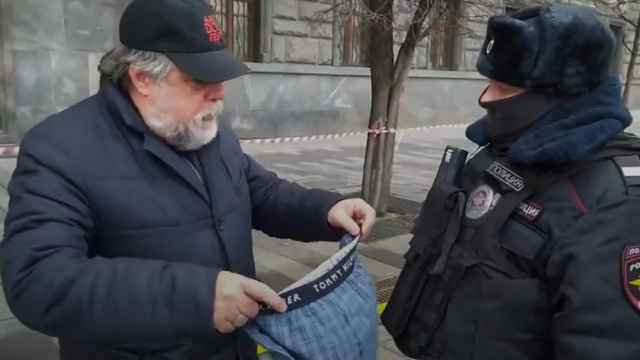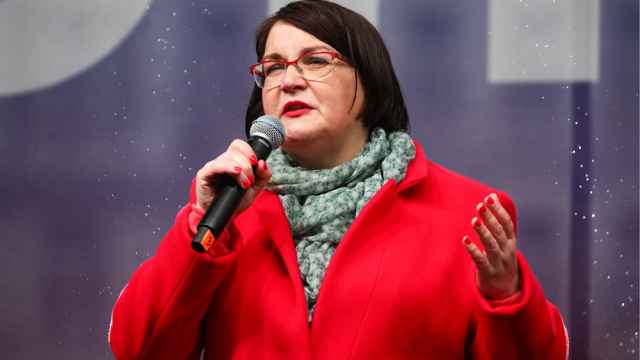Officials in Russia and Georgia have spoken out following Thursday night’s mass protest in Tbilisi which broke out over anti-Russian sentiment and led to dozens of injuries.
Crowds angry over the visit of a Russian lawmaker tried to storm Georgia's parliament building on Thursday evening, pushing against lines of riot police, throwing bottles and grabbing riot shields from officers and tearing off their helmets. Riot police used tear gas, rubber bullets and water cannons, prompting most of the protesters to disperse.
Russia and Georgia have not had full diplomatic relations since a war between the two countries in 2008. Memories of the war are still raw for many Georgians and relations with Russia are a hot button issue in the country's domestic politics.
Here are the reactions:
Russia
Deputy Foreign Minister Grigory Karasin
“We express our indignation at the actions taken by representatives of the radical political forces of Georgia, who used an important international forum uniting the Orthodox states of the world to spew their anti-Russian sentiments,” Karasin told the state-run RIA Novosti news agency.
State Duma speaker Vyacheslav Volodin
“The rally of radical forces was directed not only against representatives of Russia, but also at all 25 countries of the Inter-Parliamentary Assembly of Orthodoxy,” Volodin told RIA Novosti. “Thus, the discussion of issues important for the organization was thwarted.”
State Duma deputy Sergei Gavrilov, whose speech in the Georgian parliament sparked off the protests
Gavrilov told the RBC news website that protesters "came out with pre-prepared posters against Russia, its president and Orthodoxy," and used the forum to solve "their internal political issues, including the transfer of power."
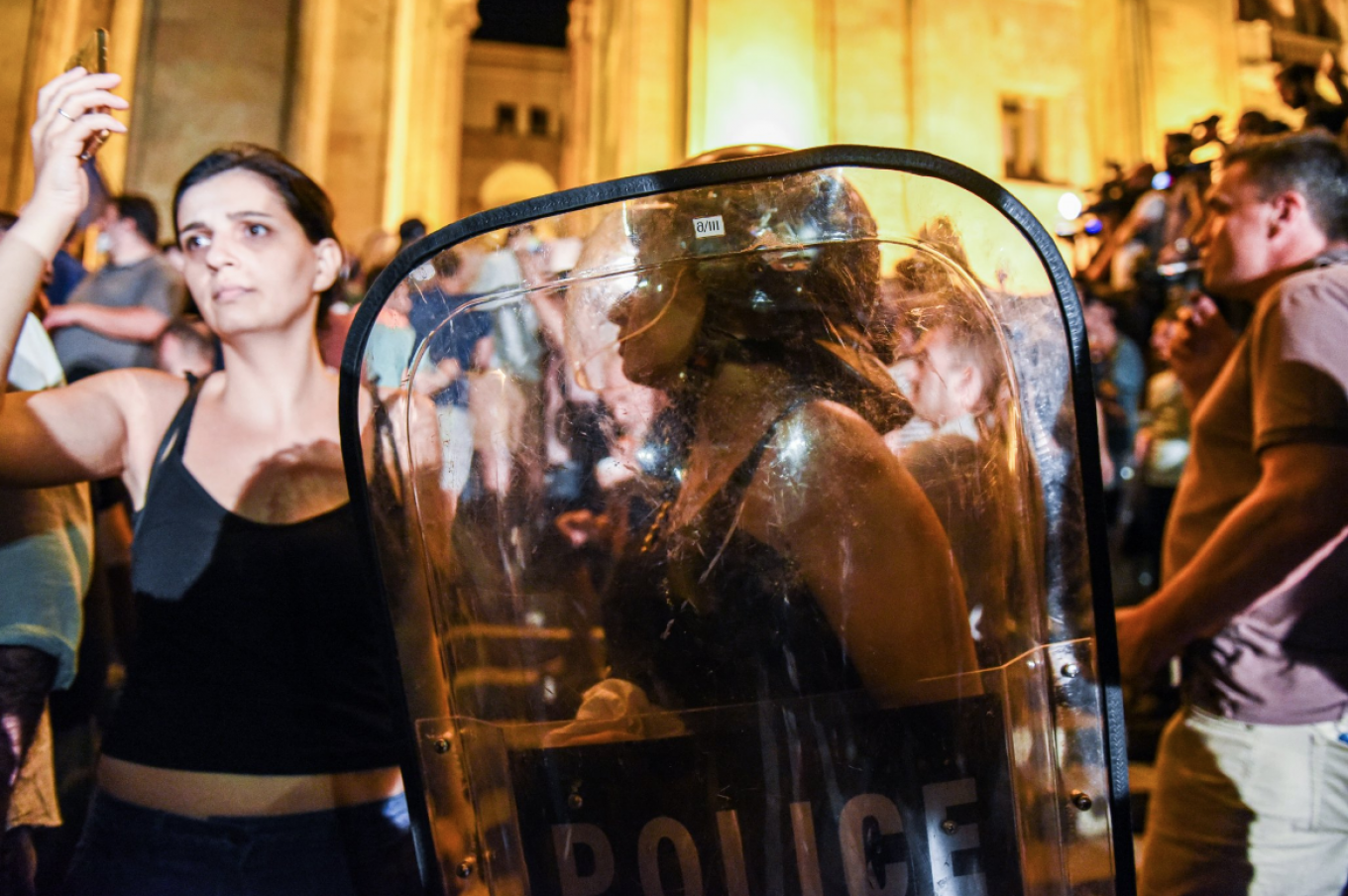
“Where my host invites me to sit down, that’s where I will be,” Gavrilov told the Kommersant business daily. “And only the president of the Inter-Parliamentary Assembly of Orthodoxy leads the General Assembly — in this case, me. I want to emphasize that I sat in the same honorable place in the parliament of Greece, in the Lebanese parliament and others — and there were no problems. Of course, I am ready to work even on a side stool. Honestly, I am a modest person and do not chase after recognition.”
Georgia
President Salome Zurabishvili
"Russia is our enemy and occupier. The fifth column it manages may even be more dangerous than open aggression,” Zurabishvili wrote on her Facebook page. "Russia is the only one that benefits from a split the country and society and from internal confrontation — and that is its most recognizable weapon today."
Ruling Georgian Dream party chairman Bidzina Ivanishvili
Ivanishvili said it was unacceptable that a "representative of the invader state" had been chosen to lead the forum in the Georgian parliament.
Opposition politician Elene Khoshtaria
"The ruling party has brought the occupiers here and lets them sit in the parliamentary speaker's chair,” Khoshtaria said. “This is a slap in the face of Georgian history."
"This event will not continue while there are Russian delegates here."
Former President Mikheil Saakashvili
“I call on Georgian police to stop obeying Ivanishvili and join the people!” he wrote on his Facebook.
A Message from The Moscow Times:
Dear readers,
We are facing unprecedented challenges. Russia's Prosecutor General's Office has designated The Moscow Times as an "undesirable" organization, criminalizing our work and putting our staff at risk of prosecution. This follows our earlier unjust labeling as a "foreign agent."
These actions are direct attempts to silence independent journalism in Russia. The authorities claim our work "discredits the decisions of the Russian leadership." We see things differently: we strive to provide accurate, unbiased reporting on Russia.
We, the journalists of The Moscow Times, refuse to be silenced. But to continue our work, we need your help.
Your support, no matter how small, makes a world of difference. If you can, please support us monthly starting from just $2. It's quick to set up, and every contribution makes a significant impact.
By supporting The Moscow Times, you're defending open, independent journalism in the face of repression. Thank you for standing with us.
Remind me later.


